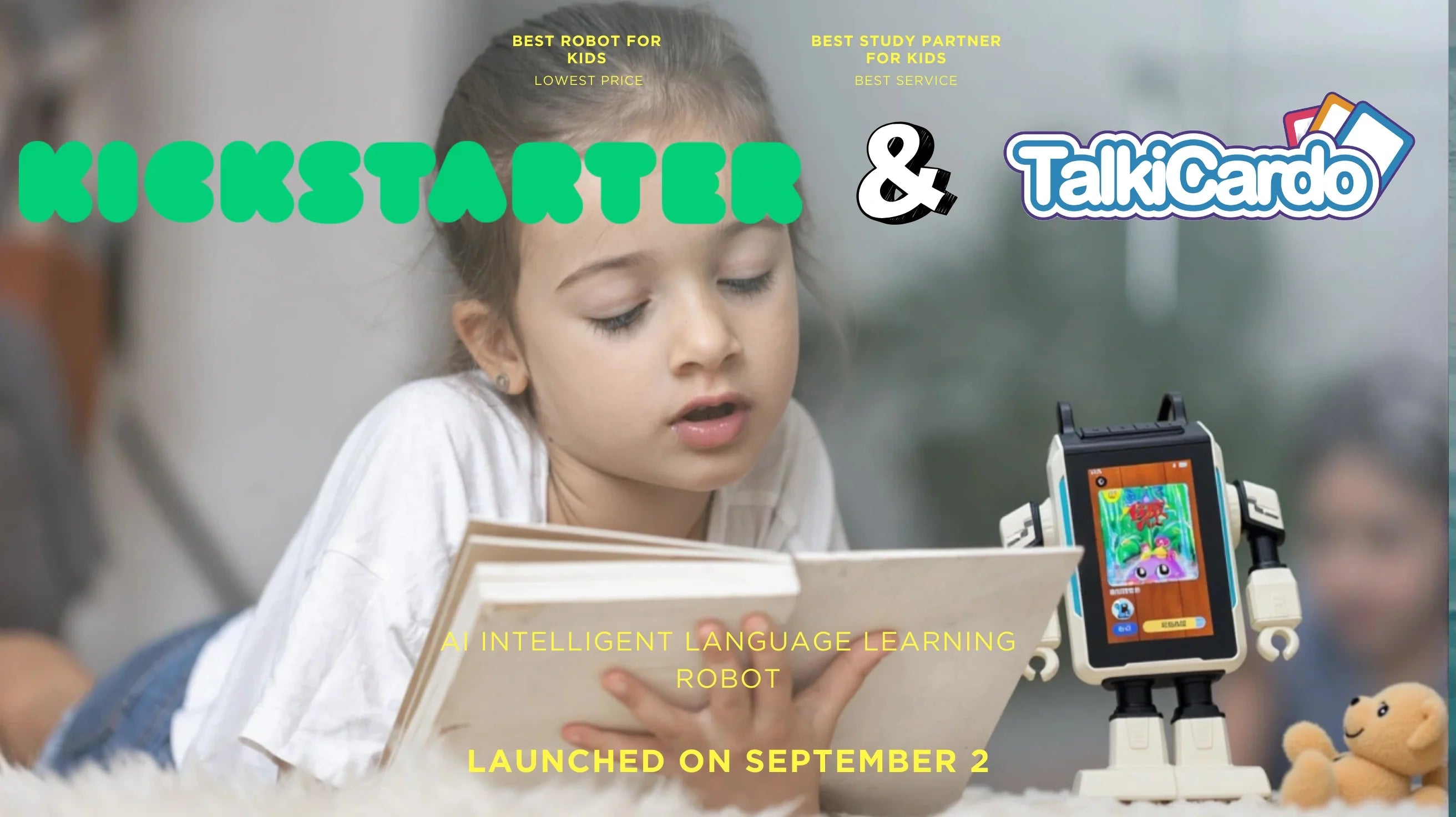
Case Study: How a Singapore NGO Saved S$12,000 in Interpreter Fees with AI Translation Technology
Posted by Aipilot on
Table Of Contents
- Introduction
- The Challenge: Language Barriers in Humanitarian Work
- The Traditional Approach: Human Interpreters and Their Limitations
- The AI Solution: Implementing TalkiTrans
- The Implementation Process
- Measurable Results: Beyond Cost Savings
- Key Benefits for NGO Operations
- Future Applications and Expansion
- Conclusion
In today's globalized world, non-governmental organizations (NGOs) face unique challenges when coordinating international efforts. Language barriers often stand as significant obstacles to efficient communication, requiring costly interpreter services that strain already limited budgets. This case study examines how a Singapore-based humanitarian NGO transformed its multilingual operations while achieving substantial cost savings through innovative AI technology.
The organization, which coordinates relief efforts across Southeast Asia, was spending a significant portion of its operational budget on interpretation services for multilingual meetings and fieldwork. By implementing AIPILOT's TalkiTrans AI-powered simultaneous interpretation system, the NGO not only eliminated persistent communication challenges but also realized savings of S$12,000 within six months—funds that could be redirected to their core humanitarian mission.
This real-world application demonstrates how artificial intelligence is creating practical, cost-effective solutions for organizations with limited resources, ultimately enabling them to expand their impact in the communities they serve. Let's explore how this transformation unfolded and the measurable benefits it delivered.
How a Singapore NGO Saved S$12,000 with AI Translation
Time & Cost Challenge
Before AI implementation, the NGO spent S$2,000 monthly on interpreters
Key Challenges Before AI Solution
Weekly meetings required at least two professional interpreters
Field operations stalled due to language miscommunications
Training sessions required separate delivery for different language groups
AI Solution: TalkiTrans Implementation
Real-time translation across 20+ languages
Custom terminology for humanitarian work
Portable hardware for field operations
Implementation Timeline
Day 1-2: Assessment & planning
Day 3-5: System configuration
Day 6: Staff training & deployment
Meeting Duration
Staff Participation
Response Time
Cost Breakdown: 6-Month Savings
Interpreter Fees
S$2,000 monthly for weekly meetings
Document Translation
From manual to AI-assisted translation
Travel Expenses
No more interpreter transportation costs
Transform Your Organization's Multilingual Communication
Break language barriers while reducing costs with AIPILOT's AI-powered translation solutions
Explore AIPILOT SolutionsContent powered by AIPILOT | AI-Generated Content Solutions
The Challenge: Language Barriers in Humanitarian Work
The NGO in our case study (which requested anonymity for this publication) operates across five Southeast Asian countries, coordinating disaster relief, community development, and educational initiatives. Their 45-person team includes staff members who collectively speak over 12 languages and dialects, with varying levels of English proficiency.
Before implementing an AI solution, the organization faced several critical challenges:
- Weekly coordination meetings required at least two professional interpreters, as team members from different regions needed to communicate effectively
- Field operations often stalled due to miscommunications between team members speaking different languages
- Training sessions required separate delivery for different language groups, essentially doubling or tripling the time commitment
- Documentation needed translation into multiple languages, creating delays in information dissemination
- Budget constraints meant interpretation services were often unavailable for smaller but still important meetings
"We were spending approximately S$2,000 monthly on professional interpretation services," explains the NGO's Operations Director. "But the bigger cost was actually in lost efficiency. Critical decisions were delayed, and sometimes important nuances were lost in translation, affecting our ability to respond quickly to community needs."
The Traditional Approach: Human Interpreters and Their Limitations
Prior to implementing AI technology, the NGO relied on a combination of professional interpreters for major meetings and bilingual staff members who would informally translate during smaller interactions. This approach had several significant drawbacks:
Professional interpreters, while skilled, represented a substantial cost—typically S$500-800 per interpreter for a full-day meeting. For the NGO's weekly three-hour coordination meetings, this translated to approximately S$2,000 monthly in direct costs. For annual training events or regional conferences, interpretation costs could exceed S$5,000 for a single event.
Beyond the financial implications, there were operational challenges as well. Meetings required advanced scheduling to ensure interpreter availability. Spontaneous discussions or emergency meetings were challenging to arrange with proper language support. Additionally, the sequential nature of interpretation extended meeting durations by 40-60%, reducing overall organizational productivity.
"We were essentially operating at half-efficiency during multilingual meetings," notes the NGO's Program Manager. "Everyone would speak, then wait for translation, then respond, then wait again. In crisis situations, these delays were more than inconvenient—they affected our ability to coordinate timely responses."
The AI Solution: Implementing TalkiTrans
After researching various options to address their communication challenges, the NGO partnered with AIPILOT to implement TalkiTrans, an AI-powered simultaneous interpretation system specifically designed for multilingual meetings.
TalkiTrans functions as a comprehensive meeting solution that provides real-time translation across multiple languages simultaneously. The system includes:
- Hardware devices that capture speech and deliver translated audio to participants
- AI software powered by advanced large language models that perform the translations
- Support for over 20 languages and regional dialects relevant to the NGO's operations
- Customization capabilities to incorporate organization-specific terminology and phrases
- Cloud-based management that allows for ongoing improvements to translation accuracy
"What impressed us most was how quickly the system could be deployed and how little technical expertise was required from our team," says the IT Coordinator at the NGO. "We were operational within days, not weeks or months as we initially expected."
The TalkiTrans system's key technological advantage lies in its ability to understand context and maintain consistency throughout conversations—capabilities that basic translation tools lack. The system learns from each interaction, gradually improving its accuracy for the specific terminology and discussion patterns common in humanitarian work.
The Implementation Process
The NGO's journey to implementing the AI translation solution followed a structured approach that ensured minimal disruption to ongoing operations:
Initial Assessment and Planning
The process began with a comprehensive needs assessment conducted by AIPILOT's technical team. This involved analyzing the NGO's communication patterns, documenting the primary languages used across different departments, and identifying key terminology specific to their humanitarian work.
"The AIPILOT team spent time understanding our workflow before recommending a solution," explains the NGO's Executive Director. "They weren't just selling technology; they were solving a specific operational problem for us."
System Configuration and Customization
Based on the assessment, AIPILOT configured a TalkiTrans setup optimized for the NGO's specific needs. This included:
- Pre-training the AI model with humanitarian and development sector terminology
- Creating custom language profiles for Southeast Asian dialects commonly used in their operations
- Configuring hardware to work reliably in various environments, including areas with limited connectivity
- Setting up user profiles for staff members to track individual language preferences
Staff Training and Initial Deployment
AIPILOT conducted a half-day training session for key staff members, who then cascaded the training to the wider team. The intuitive nature of the TalkiTrans system meant that most users required minimal instruction to become proficient.
The NGO initially deployed the system in their headquarters for weekly coordination meetings, gradually expanding usage to field operations and external stakeholder engagements as staff confidence in the technology grew.
Measurable Results: Beyond Cost Savings
Within six months of implementing TalkiTrans, the NGO documented several quantifiable improvements to their operations:
Direct Financial Impact
The most immediate benefit was a significant reduction in interpreter expenses. The NGO calculated the following savings:
- Elimination of weekly interpreter fees: S$2,000 monthly (S$12,000 over six months)
- Reduction in document translation costs: Approximately S$3,500 over six months
- Decreased travel expenses for interpreters: S$1,800 over six months
After accounting for the investment in the TalkiTrans system, the net savings over the six-month period reached S$12,000—representing funds that could be redirected to direct program activities rather than administrative overhead.
Operational Efficiency Improvements
Beyond direct cost savings, the NGO experienced substantial operational benefits:
- Meeting duration decreased by 35% on average, as simultaneous translation eliminated waiting periods
- Response time to critical situations improved by 40% due to faster communication across language barriers
- Staff participation in meetings increased by 60% among non-English speakers, creating more inclusive decision-making
- Documentation turnaround time decreased from days to hours with AI-assisted translation
"The technology essentially removed a layer of friction from all our multilingual interactions," notes the Operations Director. "We're now working as one cohesive team rather than separate language groups."
Key Benefits for NGO Operations
The implementation of TalkiTrans delivered several qualitative benefits that transformed how the organization functions:
Enhanced Decision-Making
With language barriers significantly reduced, the NGO reported more nuanced discussions and better-informed decisions. Staff members could express complex ideas in their native languages, resulting in more innovative problem-solving approaches.
"We've uncovered insights and perspectives that were previously lost in translation," explains the Program Director. "Team members who were quieter in meetings because they weren't confident in English are now among our most valuable contributors."
Improved Community Engagement
The portable nature of the TalkiTrans system allowed the NGO to bring translation capabilities directly to field operations. This enabled more meaningful engagement with local communities without relying on field interpreters.
Staff members reported stronger connections with beneficiaries and more accurate needs assessments when communication could flow naturally in local languages. This resulted in programs better tailored to community needs.
Expanded Training Capabilities
Prior to implementing TalkiTrans, the NGO conducted separate training sessions for different language groups, a resource-intensive approach. With AI-powered translation, unified training became possible, allowing for standardized information delivery across all regions.
"We can now run a single training session with participants from all our operating countries," notes the Training Coordinator. "Beyond the cost savings, this creates a shared experience that builds organizational cohesion."
Scalable Communication Infrastructure
As the NGO considers expansion into additional countries, the TalkiTrans system provides a scalable solution that can grow with them. New languages can be added to the platform without significant additional investment, making future growth more sustainable.
The organization has already begun exploring integration with AIPILOT's AI Teaching Assistant for training purposes and the AI Mouse for documentation tasks, creating a comprehensive AI-powered communication ecosystem.
Future Applications and Expansion
Encouraged by the success of their initial implementation, the NGO is exploring additional applications of AI translation technology:
Multi-Stakeholder Coordination
The NGO frequently coordinates with government agencies, other non-profits, and international organizations. They plan to extend TalkiTrans use to these multi-stakeholder meetings, potentially expanding their role as a regional coordinator due to their ability to facilitate multilingual discussions efficiently.
Community Education Initiatives
Several of the NGO's programs focus on community education. They are exploring how TalkiCardo AI Chat Cards might support educational initiatives, particularly in areas where multiple languages are spoken within a single community.
"The ability to deliver consistent educational content across language barriers could significantly scale our impact," explains the Education Program Lead. "We're particularly interested in applications for health education and disaster preparedness training."
Remote Volunteer Engagement
The NGO relies on international volunteers with specialized skills who traditionally needed to work through interpreters. With AI translation, they're establishing a remote volunteer program that will allow experts to contribute virtually without language limitations.
This initiative is expected to expand their access to specialized volunteers while further reducing travel costs and environmental impact.
Conclusion
The transformation of this Singapore-based NGO through AI-powered translation technology represents a compelling example of how artificial intelligence can deliver practical, measurable benefits to humanitarian organizations.
By implementing AIPILOT's TalkiTrans system, the NGO achieved direct cost savings of S$12,000 over six months—funds that could be redirected to their core mission rather than administrative overhead. More importantly, they removed a fundamental barrier to effective operations, enabling more inclusive decision-making, faster response times, and deeper community engagement.
As AI technology continues to evolve, its potential to support humanitarian work grows exponentially. Solutions like TalkiTrans demonstrate that AI isn't just a tool for large corporations or tech companies—it's increasingly accessible to organizations of all sizes, including those working to create social impact with limited resources.
"The most powerful aspect of this technology isn't just what it does, but what it enables us to do," reflects the NGO's Executive Director. "By removing language barriers, we can focus completely on our mission of supporting communities in need. That's the true value of this implementation."
Transform Your Organization's Multilingual Communication
Is your organization struggling with language barriers? AIPILOT's AI-powered translation solutions can help you improve communication efficiency while reducing costs.
Learn more about our innovative AI technologies and how they can be customized for your specific needs.


















































